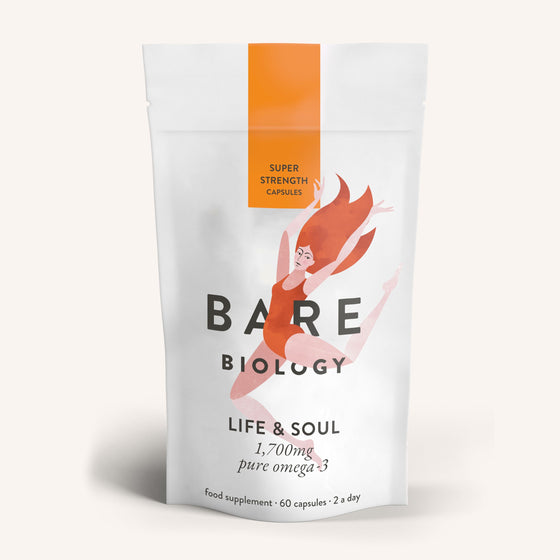After following four years of study with clinical practice at the University of Greenwich and the UK College of Nutritional Health (BCNH), Mary van der Westhuizen qualified as a Nutritional Therapist. She now runs a private practice in London, meeting clients with a wide range of health and lifestyle objectives. In this article, Mary explains how a balanced diet can have a positive effect on our energy levels...
Phew! We’ve made it through the year and into the next! December is a wonderful month full of fun, family time and festivities but it’s also a very busy time of year. The parties, busy days and often less than perfect food and drink consumption can leave us exhausted and drained. How are you feeling now?
Our energy comes from the food we eat. This may sound obvious but sometimes it’s easy to forget when we’re looking for quick fixes and instead turn to caffeine or sugar….
Aside from sleeping more, what else can we do to ensure we have maximum energy for 2018?
Check your digestion

In order to get the most out of the food we eat we need to digest and absorb it properly. This relies on a proper functioning digestive system. One easy thing you can do to help your digestive system function optimally is to take time to eat your food in a calm, relaxed fashion and chew your food a lot. By a lot, I mean 20-30 chews per mouthful. By eating in this way we make it easier for our body to extract maximum nutrition from food; the more nutrients we can extract from food the more we nourish and energise our bodies.
Check your diet

Are you eating in a way that will keep your blood sugar levels balanced? Balanced blood sugar levels help us to feel energetic and clear headed. When blood sugar levels aren’t balanced they can soar and crash in an irregular fashion. This results in surges and dips in hormones, leading to fatigue and mood swings. In order to keep blood sugar levels balanced we need to:
- Eat regularly – don’t skip meals (this includes breakfast!).
- Eat a balanced, nutrient-rich diet full of fresh vegetables and fruits, wholegrains, oily fish and lean meat.
- Avoid processed and sugar-rich foods and drinks which cause blood sugar highs and lows.
The good thing is, if we eat in a way that balances our blood sugar levels we will feel the benefits immediately. We won’t need to wait a week to see progress. By consuming nutrient-rich carbohydrates, fats and amino acids we’ll also be nourishing our body with all the necessary macronutrients, vitamins and minerals required for energy metabolism.
Drink more water

Fatigue is often a symptom of dehydration. We need to be drinking at least 8 -10 glasses of water each day (more if you are overweight or exercising a lot). Tips to achieve this:
- Carry a bottle of water with you in your bag wherever you go.
- Have a pint of water by your bed so you can get started with your water intake as soon as you wake up.
- Whenever you feel hungry between meals, have a drink of water before you reach for a snack.
Limit alcohol

Drinking alcohol can contribute to blood sugar imbalances and interfere with good quality sleep. It can also deplete the body of essential nutrients required for the production of energy. The recommended safe upper limit of alcohol consumption is currently 14 units per week. This amounts to about 6 glasses of wine per week… it’s easy to go over this amount. Choose a tactic to help you moderate your drinking. You could:
- Try Dry January!
- Opt for white wine spritzers
- Alternate alcoholic drinks with soft drinks when you’re out and about
Move!

Exercising helps us to feel energized. The increased blood and oxygen flow resulting from exercise - together with the accompanying endorphins - help us to feel less tired and more motivated. It can be hard to find the time to exercise when we’re busy and we have such limited hours of sunlight, however it’s a question of priority. There is always a way to fit in some exercise in the week, even if it’s just a brisk walk. Ideas:
- Mix up your commute to incorporate some exercise, e.g. you could get up five minutes earlier or get home a bit later in order to walk to the train station instead of taking the bus.
- Do a few sit ups and press ups at home before your morning shower (increase the number each day).
- Get a workout app so you can exercise from home in the evenings. I like Barre3.
Whatever exercise you can fit in is better than nothing. Schedule it into your diary and make it happen.





